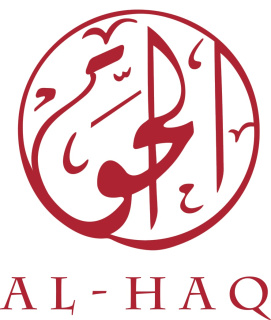
Al-Haq is following closely the recent developments within the judiciary, consisting of the referral of Judge Dr. Ahmad Al-Ashqar to the Disciplinary Board for publishing an article in his name in the media. These developments follow the previous referral of Judge Dr. Ayman Thaher for investigation on the basis of a post he published on his personal Facebook account. These latest developments must be considered in light of the alarming and unfortunate statements and circulars recently issued with respect to the media by the head of the Transitional High Judicial Council. These have resulted in violations of the right to freedom of expression, as guaranteed to judges under the amended Basic Law, international human rights treaties and standards, and the Code of Judicial Conduct.
Al-Haq reaffirms the importance of the protection of the right of judges to freely express their opinions and considers that this fundamental right falls within the framework of judicial reform and the independence of the judiciary. In addition, denying judges their right to freedom of expression implies discrimination between judges and non-judges, which is prohibited by the amended Basic Law and international standards. Accordingly, the right of judges to the protection of fundamental freedoms requires guaranteeing this inalienable human right to judges.
The international human rights system, and at its forefront, the right to freedom of expression, is indivisible and addresses the inherent rights of human beings, whether the person is a judge or not, as affirmed by the Universal Declaration of Human Rights (UDHR), and international human right instruments, including: the International Covenant on Civil and Political Rights (ICCPR), the Basic Principles on the Independence of the Judiciary, the Bangalore Principles of Judicial Conduct, the Burgh House Principles on the Independence of the International Judiciary, the regional Riyadh Instrument on the Ethics and Conduct of Arab Judge, the Palestinian Judicial Code of Conduct, and other international and regional treaties protecting and safeguarding the right to freedom of expression of judges.
Al-Haq affirms that the duty of judicial conservatism for judges is of a purely functional nature and does not involve restrictions on the right to freedom of expression under international human rights standards. Instead, the principle is limited to cases brought before the judge. As such, judges have the right to freely express their opinions in the media and on social media, without restrictions, and by any means, they choose. This encompasses the right of judges to freely express criticism as to the performance of the judicial administration, and the state of the judiciary, or others, as enshrined in the Basic Law and international treaties and standards. Accordingly, the right of judges to freedom of expression does not infringe on their independence and impartiality. In addition, any restrictions imposed on the right to freedom of expression shall not rid this right of its contents or jeopardize its exercise.
Al-Haq reaffirms its joint position paper, as issued on 5 September 2019, which included calls by civil society organizations in the West Bank and Gaza Strip for the reform and unity of the Palestinian judiciary and justice sector. In the position paper, the organizations stressed the urgent need to repeal Law by Decree No. 17 of 2019 on the formation of the Transitional High Judicial Council, due to its violation of the Basic Law and the Law on the Judicial Authority. In addition, the organizations considered that the right to judicial reform and unity is a right of Palestinian society in the West Bank and Gaza Strip, also highlighting the repeated attempts by the executive authority to exercise its monopoly over the judicial reform process, which have resulted in its failure. Finally, the position paper also stressed the need to include the Supreme Constitutional Court in reforming and unifying the judiciary, in addition to the need to hold community-based consultations within a specified timeframe and with a clear and transparent methodology, founded in the principle of the rule of law and accountability for interference with judicial affairs.
Accordingly, Al-Haq condemns the assault on the right of judges to freely express their opinions, and affirms the following:
- The referral of judges for investigation and discipline on the basis of their exercise of their inherent right to freedom of expression amounts to a violation of the Basic Law, international human rights treaties and standards, and the Code of Judicial Conduct.
- All circulars issued by the heads of previous Judicial Councils in addition to the current head of the Transitional High Judicial Council, which infringe the right of judges to freedom of expression, must be repealed for violating the provisions of the Basic Law and international standards.
- All regulations and decisions issued by the Judicial Councils, including the Regulations of Judicial Inspection, must be reviewed. This includes the duty to ensure the cessation of the monopoly of power exercised by the head of the Transitional High Judicial Council in relation to the complaints submitted against judges, including his power to decide in favor or against the referral of judges for judicial inspection. In addition, these regulations and decisions must be brought in line with the provisions of the Basic Law, the Law on the Judicial Authority, and relevant international standards.
- Al-Haq calls upon President Mahmoud Abbas to issue a decree calling for the organization of general and simultaneous presidential and legislative elections, according to the law, to ensure an enabling environment for the reform of the judiciary and the justice system in Palestine.

